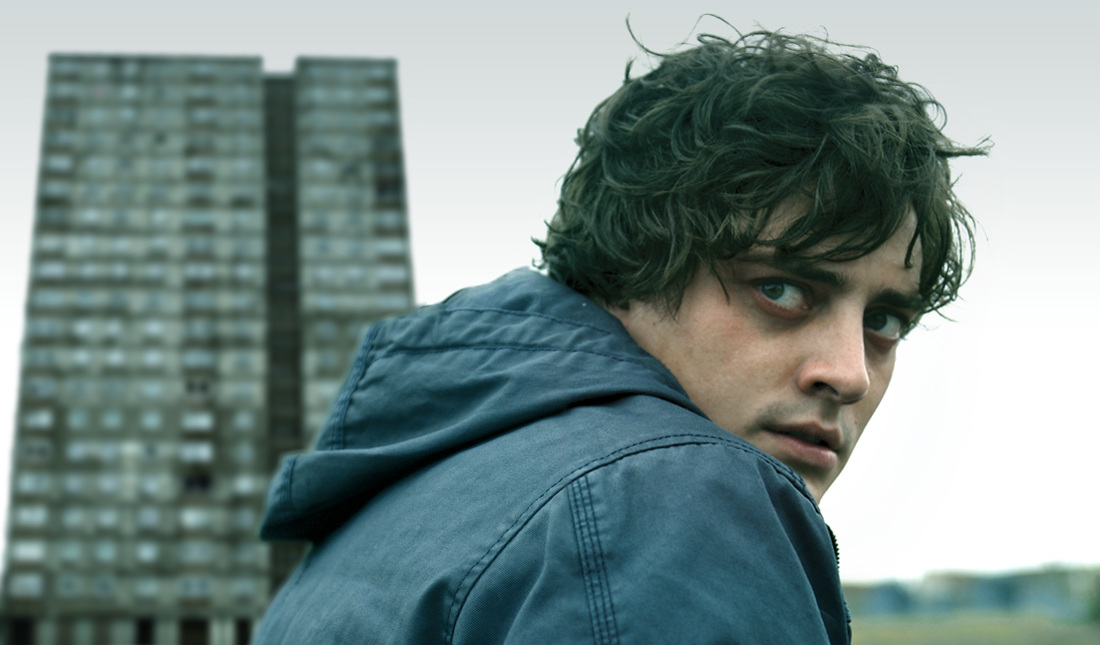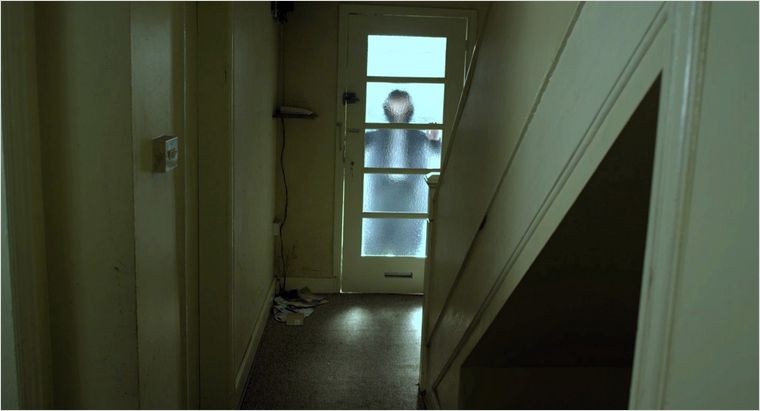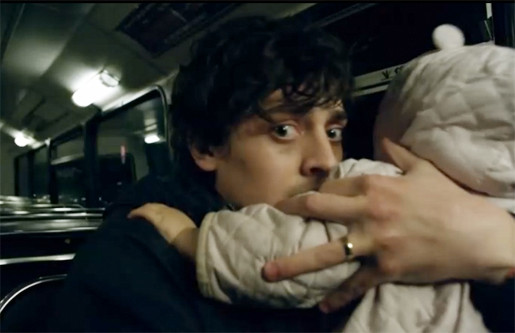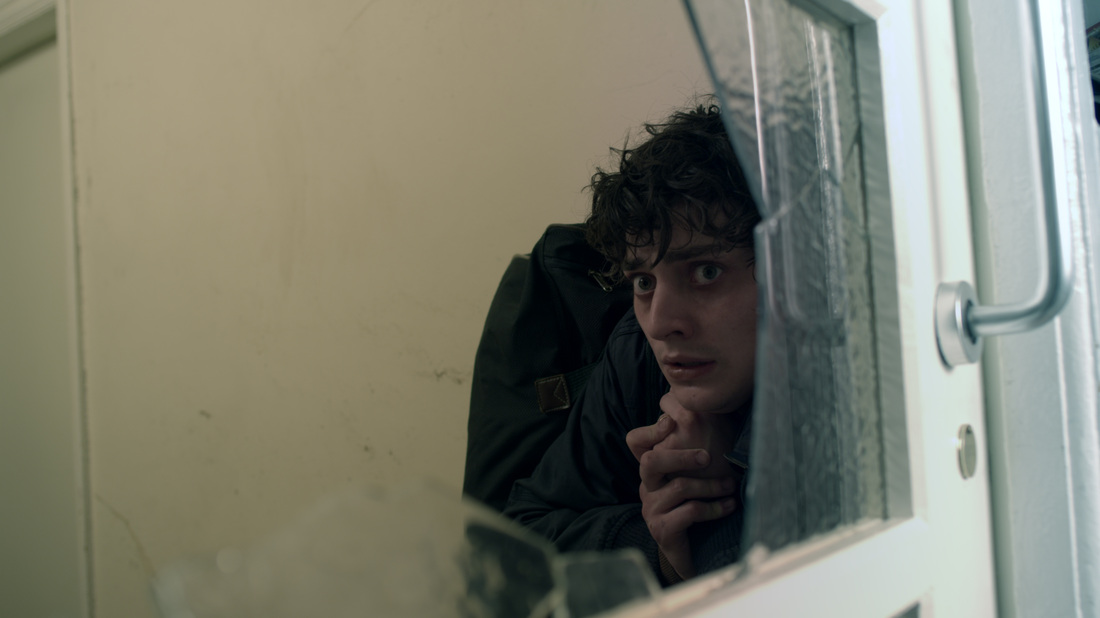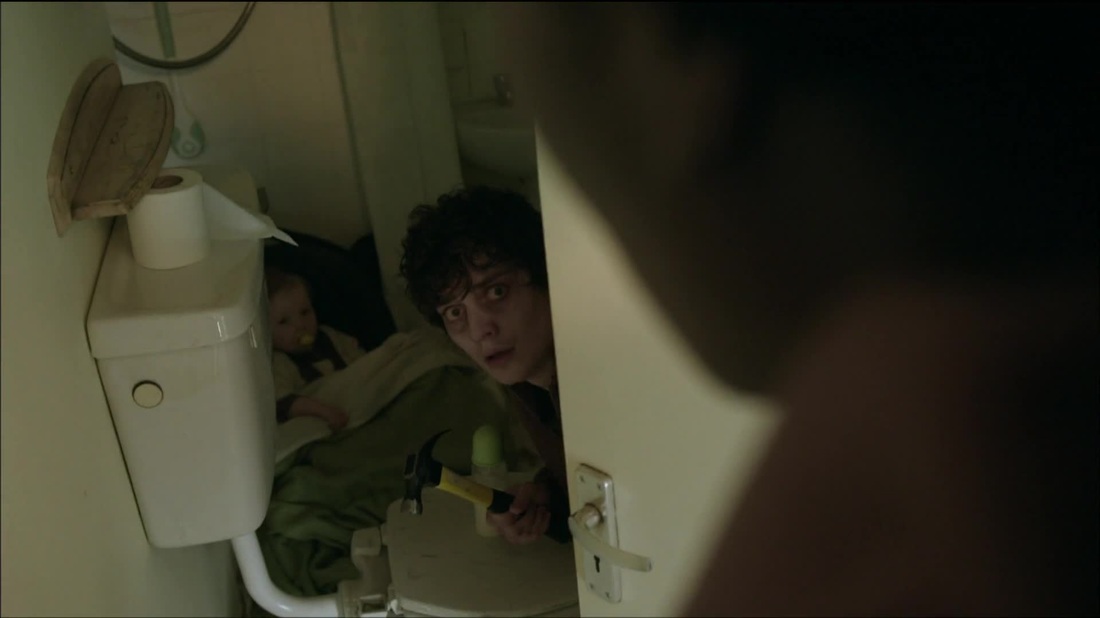|
The purpose of many horror films is to reflect the fears of society and Citadel does just that. In the tradition of hoodie-fearing horror flicks such as Eden Lake (2008) and F (2010) and only a year after the disastrous London riots, Citadel reflects social fears and prejudices about the younger generation in contemporary Britain. At its UK premiere at the BFI London Film Festival, Irish writer and director Ciaran Foy described his feature debut as “part psychological horror, part autobiography.” The film is based on Foy’s experiences of being assaulted and the resulting trauma reveals itself in the narrative of the film. In an attempt to reinterpret the overused depiction of youth, Foy portrays adolescents as hooded zombies out to wreak havoc in the working class suburban council estates.
Agoraphobic father Tommy (Aneurin Barnard) struggles with the loss of his very pregnant wife after she is savagely attacked by a gang of feral children, living only long enough to give birth to their child. Highly distraught and disturbed by the event, Tommy cages himself away inside his desolate flat, fearing the hooded zombies he believes are out to kill his newborn child. The sense of horror is vividly brought to life in Foy’s bleakly atmospheric film even if the script is rather bland and unoriginal. Beginning with well-lit and almost cheery shots as a young Tommy caresses his girlfriend’s heavily pregnant stomach, Foy shatters this illusion in an all too obvious indication of bad omens such as the door number of Tommy’s flat hanging off. Citadel is filmed entirely from Tommy’s view point with a hand-held camera. The result is a series of shaky shots that complement his deteriorating sanity as he succumbs to his nightmarish anxiety, encouraging the audience to feel pity for him. The film expects the audience to view the rabid hoodlums in the same way that Tommy does: swarming vermin out to harm society. In one notable scene that initially appears to defend the monstrous children, Marie (Wunmi Mosaku) comforts Tommy and states that “it’s so easy to demonise these kids.” She proposes that they are abandoned children from broken homes and “all they need is our sympathy.” However, despite her efforts to convince Tommy, and even the audience, to pity them, Marie is soon after brutally murdered by the children in a viscerally horrific scene, their faceless forms only adding to the eerie horror Citadel attempts to portray. One of the appeals of Citadel is the question over whether the events actually take place or are the result of Tommy’s agoraphobia. For a low-budget horror, the acting is first rate, particularly from upcoming Welsh actor Barnard, who was convincingly sweating and shaking with panic as he became increasingly paranoid. Barnard is adept at portraying complex characters, most recently the complicated Richard III in the BBC adaptation of Philippa Gregory’s The White Queen (2013). James Cosmo also co-stars as the outrageous priest, set on destroying the zombies who swarm the tower block apartments, feeding on the fear of the people who live there. Citadel offers a substantial sense of realism and despair that reflects, with saddening truthfulness, the prejudices against the younger generation and introduces a promising new director for the horror genre. Indeed, Foy won the audience award at the SXSW festival in 2012 and was nominated for the rising star award at the Irish Film and Television Awards this year. In Citadel, Foy has created a highly visceral and realistic film and leaves us wondering long after the final scene whether it is the “abandoned” feral adolescents who require our sympathy or is it the prejudice of society itself that is the real monster? |

